The Syrian earthquake has united the Arab world
Close to 9 million people in Syria have been affected by the 7.8 magnitude earthquake, 65 seconds in duration on February 6, that Turkish President Erdogan has compared with the power released by atomic bombs. The hardest hit areas are Latakia, Aleppo, and Idlib.
Published: February 16, 2023, 12:26 pm
The UN estimates that more than 4.2 million people have been affected in Aleppo province with 400 000 homeless, and 5 000 buildings declared unlivable. Aleppo has more than 1 600 dead and 10 000 injured.
The province of Idlib is a total population estimated at 3 million, but because there is no government or authority there, we can only guess how many have been affected.
The UN says 5.5 million Syrians are without a home after the earthquake, with more than 7,400 buildings having been destroyed completely, or partially in Syria.
In Latakia, there are 820 dead, 142 000 homeless, and over 2 000 injured, with 102 buildings completely collapsed, and others condemned.
A total of 58 trucks have crossed from Turkey to north-west Syria through the Bab al Hawa crossing point over the past five days, carrying aid such as food, tents, and medicines. Those trucks are solely supplying Idlib, under the occupation of the armed group, Hayat Tahrir al-Sham. Eleven trucks have gone through the newly opened border crossing of Bab al Salam today, carrying non-food items such as blankets, and mattresses.
Location matters in this quake
The map will show that Aleppo, Syria is just south of Gaziantep, Turkey which was the epicenter. Aleppo was heavily damaged in the earthquake, adding more misery to a city that was under the occupation of Al Qaeda terrorists in the eastern section until being liberated in December 2016.
Looking at a map, you see that Latakia is a 2 ½ hour drive west of Aleppo on the M4 highway. It seems like a long distance, but the power of the 7.8 magnitude brought the epicenter and Latakia together because they share the same fault line, which Aleppo does not.
UN: no roadblocks to aid, no politics
Rula Amin, UN Refugee Agency Senior Communications Advisor, urged cooperation among nations to help Turkey and Syria. She said there should be no roadblocks to assistance for people in need. Referring to the UN and western aid coming almost exclusively to Idlib, and by-passing those in need in Latakia and Aleppo, she urged all to put politics aside, and focus on getting aid to those in need regardless of whether they are in the US-EU supported area in Idlib, or whether they live in Aleppo and Latakia under the Syrian administration from Damascus. Amin is no stranger to Syria. In March 2011, Amin was one of the very first international journalists in Deraa, covering what she had claimed was a ‘popular uprising’, and even interviewed the cleric who was the key player of the Obama-designed US-NATO attack on Syria for ‘regime change.’
She did not go as far as to demand the lifting of all US-EU sanctions on Syria to send aid, but her meaning was clear. The sanctions prevent aid from arriving in Damascus. On February 9 the US Department of the Treasury issued General License 23, which allows for a humanitarian waiver of supplies to government-controlled areas in Syria, but must be received by an NGO and not the Syrian government. The 180-day waiver is far too short, as the need is enormous, and will people will need years to grapple with the damages. Rebuilding homes and businesses may take a decade or more. Also, most governments abroad would be sending official aid to Syria through a government-to-government mechanism, and using an NGO is a tedious stipulation designed to discourage aid from being sent.
Who gave to Damascus?
On Tuesday, a plane landed from Saudi Arabia at the Aleppo International Airport, carrying 35 tons of humanitarian aid. Aid to Damascus also arrived from: China, Russia, Algeria, Iraq, Iran, UAE, Bangladesh, Libya, Belarus, Jordan, Cuba, Venezuela, Tunisia, Armenia, Turkmenistan, Cyprus, Hungary, India, and Sudan.
Jordanian Aid plane landing in Damascus international Airport
Italy sent two planeloads of aid to Beirut, Lebanon to be transported to Syria by land. This demonstrates the extreme fear that western allies of the US have of the sanctions. By sending the aid to Lebanon, which is not sanctioned, Italy feels more comfortable that the US Treasury will not issue massive penalties against them.
Who refused aid to Damascus?
The US, the EU, and all US allies such as Canada have sent nothing to Syria for the earthquake-ravaged zones of Latakia and Aleppo. According to America, the European Union, the United Kingdom, and the allies of the US, there is no place called Syria. There is only a small, rural agricultural province called Idlib. Syria is 10,000 years old, and Damascus and Aleppo both tie as the undisputed oldest inhabited cities on earth. But the great minds in Washington, DC. only acknowledge the tiny area called Idlib. The terrorist-controlled Idlib is suffering, and has innocent unarmed civilians in need of help; however, Latakia, and Aleppo are far bigger and have sustained more deaths, injuries, and structural damages than Idlib. The US and the west have used politics to judge who gets helped, and who is forgotten. The Syrian people will never forget this. The US and EU sanctions have made life unbearable in Syria before the earthquake of the century, and now when politics should be set aside for humanitarian needs, the US doggedly holds on to their dogmatic ideology to make sure the Syrian people know the full disdain of the American government. The Foreign Minister of the United Arab Emirates visited Damascus and met with President Assad after the quake, in an act of defiance of US-dictated policy.
Where is Government controlled Syria?
The US-NATO attack on Syria beginning in March 2011 has resulted in three separate administrations in Syria. The biggest territory, about 75 percent, is the central government in Damascus. Aleppo and Latakia are the two hardest hit by the earthquake which is under the Damascus administration.
The second administration is the province of Idlib, which is an olive-growing region between Latakia and Aleppo. There is no government there. The 3 million persons there live under the occupation of an armed terrorist group, Hayat Tahrir al-Sham, formerly called Jibhat al-Nusra, the Syrian branch of Al Qaeda. The terrorists embedded themselves there in 2012, and until now are safe from attack because the US, EU, and UN all lobby for their protection, and aid. The US supports the Al Qaeda terrorists because they represent the US interests in Syria to be decided upon in a final political settlement in Syria under the auspices of the UN.
The third administration is the Kurdish self-proclaimed region of the northeast, where the US military is occupying the Syrian oil wells, and allowing the Kurds to sell the stolen oil in Iraq to cover their expenses. This area was not affected by the earthquake. This administration exists separate from Damascus only because of the US military illegal occupation
Where is Idlib?
Many of the residents of Idlib most affected by the earthquake have had to sleep outside among the olive groves, in freezing temperatures. The UN acknowledged the international response to Idlib has been a failure.
Raed al-Saleh, head of the White Helmets, an award-winning video troupe headquartered in Washington, DC. has denounced the UN as incompetent in their response to the needs in Idlib. The White Helmets work solely in Idlib and have international donors. Al-Saleh was angry after UN Secretary-General Antonio Guterres said Syrian President Assad had agreed to allow UN aid deliveries to the area through two border crossings from Turkey for three months. The White Helmets and the terrorists do not recognize the Syrian government. Damascus had tried to send aid to Idlib, but the terrorists turned it back saying, “We don’t want help from the enemy.” Previously the UN trucks of aid to Idlib were also stalled after the terrorists demanded a $1,000 fee for each of the 10 trucks.
Why are the borders controlled?
The Syrian government has controlled the border crossings of Syria for security reasons. Serena Shim, an American journalist from Detroit, witnessed and reported seeing a UN food truck carrying Al Qaeda terrorists, and their weapons, from Turkey into Syria near Idlib. She was murdered in Turkey just days after publishing her report.
The terrorists in Idlib are contained in a small area and have weapons including missiles which have frequently been directed at Latakia, and Kessab, a small Christian Armenia village just north of Latakia. The Syrian government wants to keep the weapons from flowing into Idlib while allowing UN, and other humanitarian aid to flow into the 3 million civilians who are held there as human shields.
Steven Sahiounie is a two-time award-winning journalist
All rights reserved. You have permission to quote freely from the articles provided that the source (www.freewestmedia.com) is given. Photos may not be used without our consent.
Consider donating to support our work
Help us to produce more articles like this. FreeWestMedia is depending on donations from our readers to keep going. With your help, we expose the mainstream fake news agenda.
Keep your language polite. Readers from many different countries visit and contribute to Free West Media and we must therefore obey the rules in, for example, Germany. Illegal content will be deleted.
If you have been approved to post comments without preview from FWM, you are responsible for violations of any law. This means that FWM may be forced to cooperate with authorities in a possible crime investigation.
If your comments are subject to preview by FWM, please be patient. We continually review comments but depending on the time of day it can take up to several hours before your comment is reviewed.
We reserve the right to delete comments that are offensive, contain slander or foul language, or are irrelevant to the discussion.
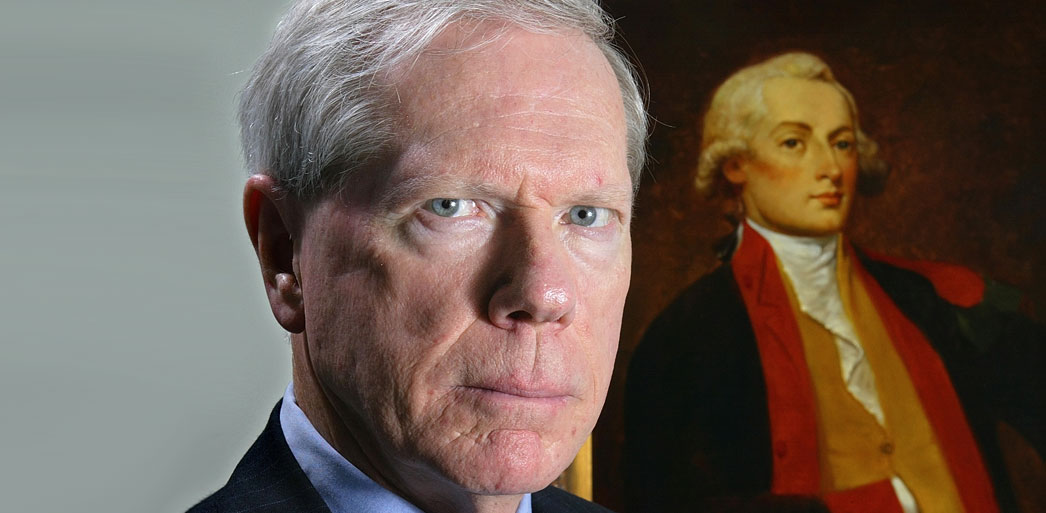
The inflation hoax
Yes, prices are rising, but not for the reasons the Federal Reserve says. When I say inflation is a hoax, I mean the purported cause is a hoax. The Fed is fighting a consumer inflation, a “demand-pull” inflation. But what we are experiencing is a supply-side inflation caused by the Covid lockdowns and economic sanctions that closed businesses, disrupted supply chains, and broke business relationships while reducing energy supplies to the UK and European countries, thus forcing up costs in a globalized economy.
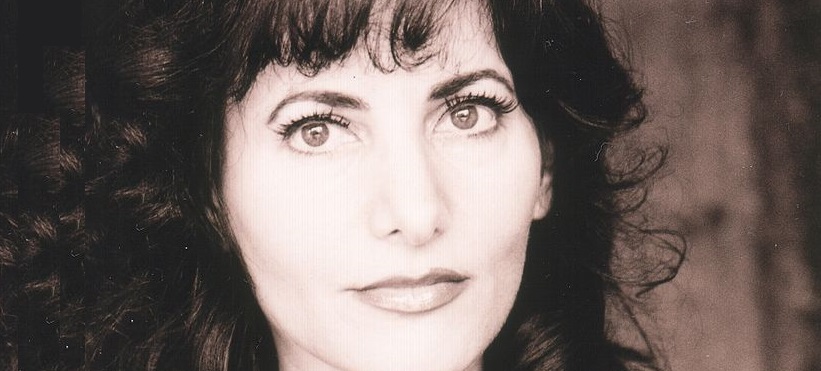
Two-Party Pox: The Republicans suck and the Democrats want to kill you
The Republican Party has never stood up for Americans, will never stand up for them and is not going to do what it takes. Past is prologue.

Russia’s loss at Kharkov highlights crippling shortage of men
KharkovThe frontline in this case relied on heavily outnumbered 2nd rate Lugansk draftees plucked from the LPR.
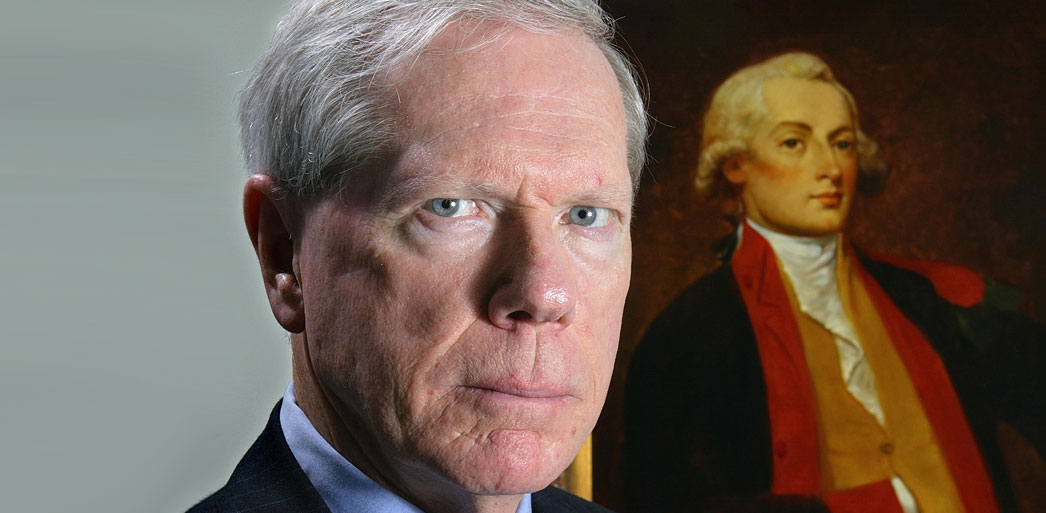
A country without an honest media is lost
For some time I have reported to you that in place of a media, a media that our founding fathers relied on to protect our society, the United States has had a propaganda ministry whose sole purpose is to destroy our society.

Sweden’s decaying democracy
A journalist is arrested and dragged out of the Gothenburg Book Fair because he politely asked a powerful politician... the wrong questions about his support for the ethnically-cleansed Zimbabwean dictatorship. Not only journalists, but academics and bloggers are being hounded by the leftist establishment daily. And the leftists have all the nasty instruments of the state at their disposal. Citizen reporter Fabian Fjälling looks into their excesses.
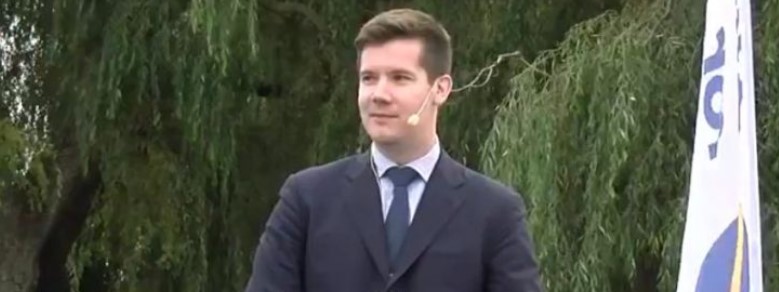
The geopolitical future of Nordic countries
Between unity and disunity, independence and foreign interference: Nordic countries have to either choose between creating an independent neutral block in the North, or seeing the region being divided between the great powers.

Russian, Chinese intelligence: ISIS heading for Central Asia with US cover
Operatives of the crumbling Islamic State in Syria and Iraq (ISIS) are moving to new battlegrounds near the Russian border, intelligence sources have revealed.

The unraveling of US/Russian relations
Washington has taken nuclear war against Russia from a hypothetical scenario to a real danger that threatens the future of humanity.

Hero commander killed in Syria – when the war is nearly won
For most Syrians it came as a shock: One of the most popular military commanders of the Syrian Arab Army, Issam Zahreddine, was killed on 18 October 2017.


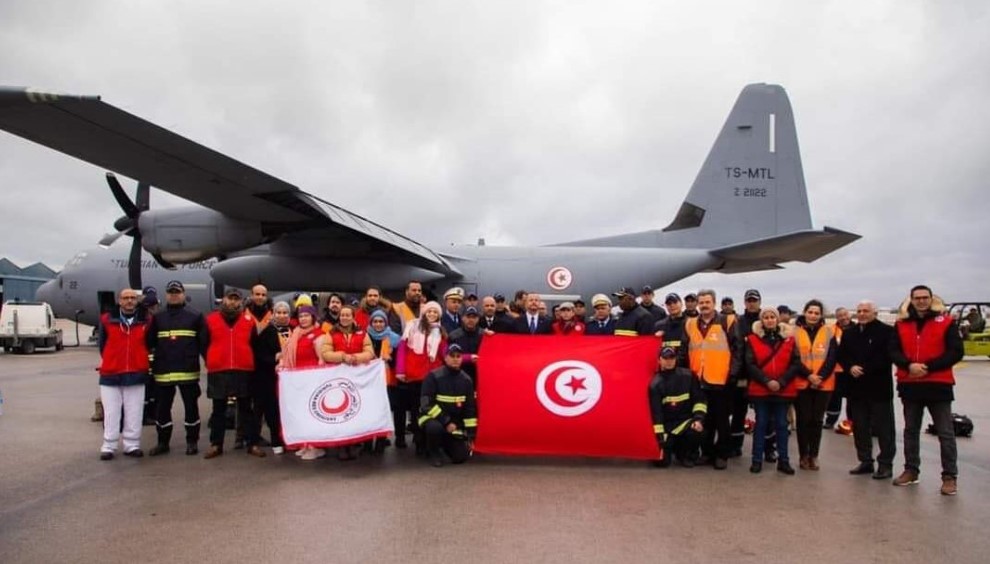

No comments.
By submitting a comment you grant Free West Media a perpetual license to reproduce your words and name/web site in attribution. Inappropriate and irrelevant comments will be removed at an admin’s discretion. Your email is used for verification purposes only, it will never be shared.